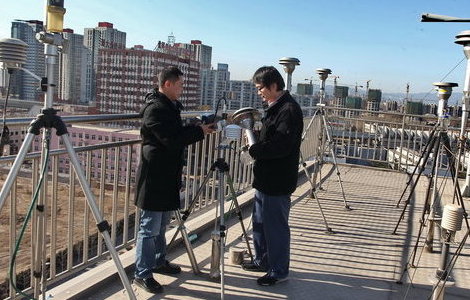Call for law to protect animal welfare
Updated: 2012-01-05 07:23
By Jin Zhu (China Daily)
|
|||||||||
BEIJING - Activists are seeking the prompt introduction of legislation to protect animals in a bid to stamp out increasing abuse, such as the slaughter of strays and live shows at zoos.
The first comprehensive law to address animal welfare was expected to be submitted to the country's legislature in 2009, but "there is still no clear timetable for legislation", Chang Jiwen, a law professor at the Chinese Academy of Social Sciences, who led the drafting team, told China Daily.
The Law on Protection of Wild Animals is the only existing animal law in the country which prohibits trafficking and abuse. It, however, fails to protect animals already in captivity.
Meanwhile, a growing number of cases of animal abuse are being reported.
A group of Web users, who formed a chat group "cat torturers", constantly posted online pictures of cats being killed or suffering cruelty.
The group allegedly threatened to kill more than 1,000 cats on Christmas Eve across the country in what they described as an act paying tribute to the group's founder.
"So far, the group has not posted new photos of killing cats online, but animal lovers are trying every means to find the cat abusers to stop them," an animal activist in Beijing, who identified herself as Xiaomiao, told China Daily.
Animal rights groups said that the rising number of abuses stemmed from public indifference.
The lack of public awareness is part of the reason why a comprehensive animal protection law has not been enacted, said Cai Chunhong, a Beijing lawyer.
"Without strong public endorsement the legislature will not put legislation on the table," she said.
"Although awareness of animal welfare is rising thanks to growing pet ownership in recent years, animal lovers are still a minority," she said.
If a comprehensive law takes time to be drafted, introduced and passed, then specific laws or regulations to punish animal abuse should fill the vacuum, Cai said.
These laws could help regulate zoos, where abuse is common.
Live animal performances often involve acts of cruelty at zoos and wildlife parks, despite a government ban, Mang Ping, a professor at the Central Institute of Socialism, said.
Mang, an animal rights activist, based her conclusion on a study of animal welfare in zoos over the past 15 years.
The survey, China Zoo Watch, covered 21 zoos and wildlife parks in cities, including Beijing, Shanghai, Hangzhou and Shenzhen.
"More than 95 percent of wildlife parks and 50 percent of zoos surveyed are making profits by increasing animal performances and those animals are treated poorly," she said.
A ban on animal shows issued by central authorities came shortly after 11 Siberian tigers at a northeast wildlife zoo in Shenyang, capital of Liaoning province, were starved to death in 2010. A panda was also killed in 2010 by poisonous gas being used to disinfect a nearby air raid shelter in a zoo in Jinan, East China's Shandong province.
"Obviously the ban is poorly implemented due to the lack of harsh punishment," Mang said.
In Beijing, animal performances, such as jumping through fiery hoops, were a growing feature in some zoos, according to Guo Geng, vice-director of Beijing Elk Ecology Research Center and a local political adviser.
"In order to maximize profit most performance programs involve cruelty," said Guo, who filed a proposal to ban animal performances in Beijing zoos in December.
Guo called for the Beijing government to step up efforts to ensure animal welfare by holding zoo owners accountable.
Authorities encouraged zoos to make money to be financially self sufficient. That prompted many zoos to promote animal performances.
Statistics from the Chinese Association of Zoological Gardens showed that the country now has more than 200 zoos.
More than 30 of the zoos are designated wildlife parks, three times the number in the United States and five times that of Japan, according to Mang's survey.
"Entertainment and profit are always priorities for zoo owners. But when animal trainers torture animals in front of audiences the zoo can never fulfill its role to educate people to protect animals," she said.
China should learn from other countries, she said.
For instance, Toronto council voted in October to move three African elephants in the zoo to California where the climate would be better for them.
Related Stories
Exotic animals on Ohio farm quarantined 2011-10-28 09:10
Animal rights 2011-12-20 11:03
Analyzing animal welfare 2011-12-21 08:06
China extends probe over US animal feed 2011-12-28 14:24
Hot Topics
Kim Jong-il, Mengniu, train crash probe, Vaclav Havel, New Year, coast guard death, Internet security, Mekong River, Strait of Hormuz, economic work conference
Editor's Picks

|

|

|

|

|

|







